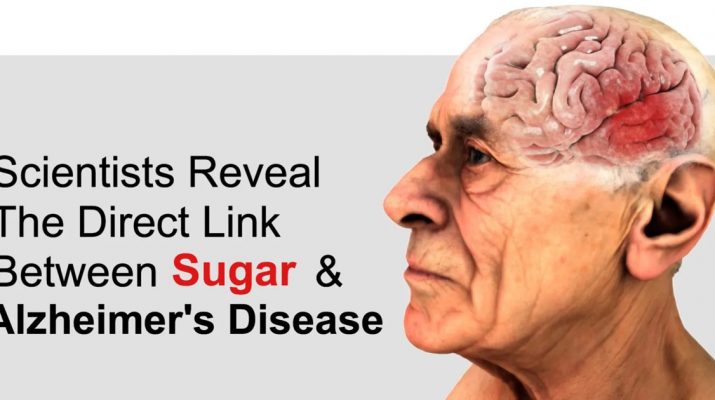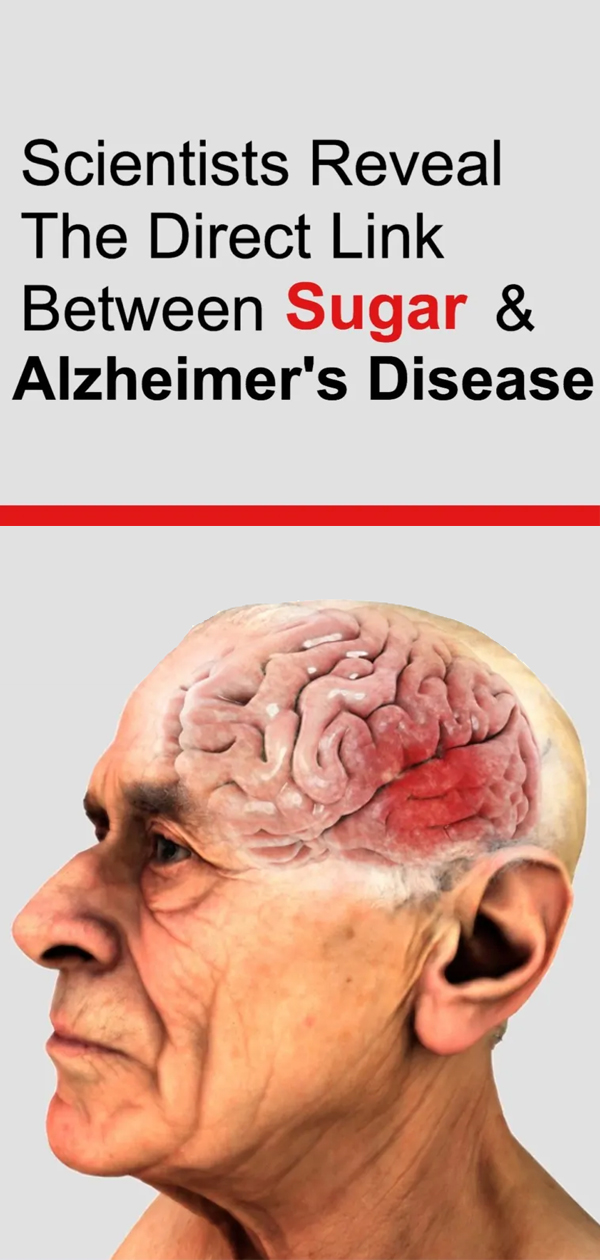“Alzheimer’s is the most common form of dementia, a general term for memory loss and other cognitive abilities serious enough to interfere with daily life. Alzheimer’s disease accounts for 60 to 80 percent of dementia cases.” – alz.org
Before we get into how large amounts of sugar in one’s diet can contribute to Alzheimer’s disease, here are some basic statistics and facts about Alzheimer’s from alz.org:– Alzheimer’s disease is the 6th leading cause of death in the U.S.– Every 66 seconds, someone in the U.S. develops Alzheimer’s
– Since 2000, deaths from the disease have increased 89%
– In 2017, an estimated 5.5 million Americans were living with Alzheimer’s (two-thirds were women)
– Last year, Alzheimer’s cost the nation $259 billion
– By 2050, this number could rise to $1.1 trillionThese are sad and alarming figures, indeed. While Alzheimer’s disease can occur due to a combination of factors, scientists have discovered a direct link between a diet high in sugar and cognitive decline.
Here’S How Sugar Can Contribute To Alzheimer’S Disease:
Some scientists have even referred to Alzheimer’s as “type 3 diabetes” because of how insulin resistance seems to play a role in the disease. Type 1 diabetes is an autoimmune disease, and type 2 diabetes can be caused by diet. Scientists have found that Alzheimer’s can be also caused by a sugary diet, but that isn’t always the case.
A longitudinal study, published a few weeks ago in the journal Diabetologia, followed 5,189 people over the course of 10 years and found that people with high blood sugar (though not necessarily diabetic) had a faster rate of cognitive decline than those with normal blood sugar.
Another review of studies performed by Melissa Schilling, a professor at New York University, showed two different trends. First, people who have type 2 diabetes have twice the likelihood of getting Alzheimer’s, and second, people with diabetes who undergo insulin treatment also have an elevated risk of developing the disease. These two trends suggest that high insulin levels are a definite risk factor in developing Alzheimer’s.
However, people with type 1 diabetes, who don’t make any insulin, also are at a high risk of getting Alzheimer’s.Schilling believes this happens because of the lack of an insulin-degrading enzyme, which helps breaks down both insulin and amyloid proteins in the brain. These are the same proteins found in large amounts in people with Alzheimer’s.People who don’t make enough insulin, such as those with type 1 diabetes, also don’t make enough of the enzyme that helps to break down that insulin.
However, on the opposite end of the spectrum, people who have too much insulin don’t have enough of the insulin-degrading enzyme left over to break up amyloid proteins since most of it is used to break down the excess insulin.
According to Schilling, this can happen even to people who are considered prediabetic. This condition affects approximately 86 million Americans.Rosebud Roberts, a professor of epidemiology and neurology at the Mayo Clinic, agreed with Schillings’ analysis.In a 2012 study, Roberts put nearly 1,000 people into four different groups based on their diet.
The group whose diet came from mostly carbs had an 80 percent higher chance of developing mild cognitive impairment – which could lead to dementia—than those diet had the least amount of carbs. Roberts said that people with type 1 diabetes who have hypoglycemic episodes are usually the only ones at risk.
However, she cautioned that everyone should watch their sugar, even if they don’t have diabetes.“Just because you don’t have type 2 diabetes doesn’t mean you can eat whatever carbs you want,” she said. “Especially if you’re not active.” Our diet, she added, is “a big factor in maintaining control of our destiny.”:
With that said, diet is not the only factor that contributes to Alzheimer’s. However, diet is one thing that we have control over, unlike our genetics. That’s why it’s important to eat a healthy, balanced diet starting at a young age, and have a regular exercise regimen, which helps your body process insulin more effectively.
Research is ongoing about the role sugar plays in the development of Alzheimer’s, but the above studies should help everyone make an informed decision about how much sugar to include in their diet. Remember that you are responsible for your health, and the decisions you make today have lasting implications for your future well-being.https://youtu.be/7BNGVmwxoHI


